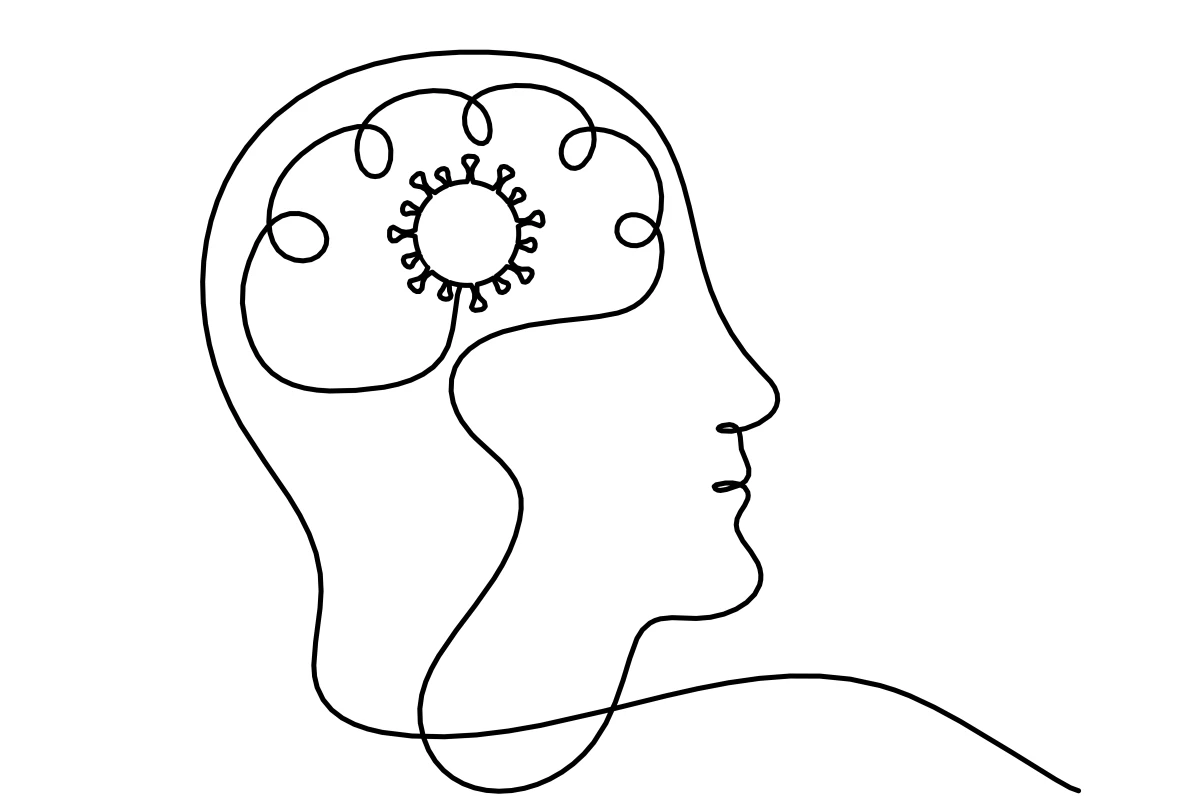A new study tracking the health of more than six million older Americans over 2020 and 2021 has found COVID-19 nearly doubles a person’s risk of developing Alzheimer’s disease in the year following infection. The findings add to a growing body of research indicating SARS-CoV-2 infections can affect progression of several neurodegenerative diseases.
"The factors that play into the development of Alzheimer's disease have been poorly understood, but two pieces considered important are prior infections, especially viral infections, and inflammation," explained Pamela Davis, from Case Western Reserve School of Medicine and co-author on the new study. "Since infection with SARS-CoV-2 has been associated with central nervous system abnormalities including inflammation, we wanted to test whether, even in the short term, COVID could lead to increased diagnoses.”
The research analyzed health records from 6,245,282 Americans aged over 65. Across a 15-month period a little over 400,000 of those subjects recorded a COVID-19 infection. Over the following 360 days, those COVID survivors were 69% more likely to be diagnosed with Alzheimer’s disease compared to those uninfected. The increased Alzheimer’s risk was highest in women and those over the age of 85 years.
Although this increased Alzheimer’s risk sounds alarming, it’s important to put it into a broader context. The researchers are clear in stating overall Alzheimer’s risk for over-65s following COVID-19 only increased from 0.35% to 0.68%. So while that does technically mean a person's risk of being diagnosed with Alzheimer's doubles in the year after COVID, it also means a person over 65 still only faces a very low absolute risk of developing the disease.
Plus, the researchers are cautious in pointing out it is unclear whether the virus is triggering new development of Alzheimer’s, or simply accelerating the progression of pre-existing neurodegeneration. Considering Alzheimer’s is a disease known to slowly progress for years, or even decades, before symptoms appear, it is unlikely these new post-COVID cases of Alzheimer’s are entirely caused by the coronavirus.
Nevertheless, Davis does stress that even a hastening of disease progression could lead to a wave of dementia cases in the near future. And this is before we understand potential longer-term neurological implications from COVID-19.
"If this increase in new diagnoses of Alzheimer's disease is sustained, the wave of patients with a disease currently without a cure will be substantial, and could further strain our long-term care resources," Davis added. "Alzheimer's disease is a serious and challenging disease, and we thought we had turned some of the tide on it by reducing general risk factors such as hypertension, heart disease, obesity and a sedentary lifestyle. Now, so many people in the US have had COVID and the long-term consequences of COVID are still emerging. It is important to continue to monitor the impact of this disease on future disability."
Prior research has established a relatively robust link between viral infections and neurodegenerative disease. And researchers have been warning since the beginning of the pandemic that we could see spikes in cases of Parkinson’s and Alzheimer’s over the next decade.
Following the release of another study earlier this year that linked COVID-19 with increased risk of neurological disease, Sara Imarsio from Alzheimer’s Research UK was clear in stressing it is too early to understand the long-term implications of this pandemic. And these initial studies can only highlight how viral infections may speed up the development of disease in those already susceptible.
“Diseases like Alzheimer’s develop in the brain over many years and COVID-19 has only been present in Europe since early 2020,” explained Imarsio earlier this year. “It may be that people in the very early stages of Alzheimer’s are more susceptible to catching diseases like COVID-19. While the announcement of these findings is potentially concerning, we will need to see results of this study in a peer-reviewed publication before we can draw any real conclusions from this research.”
The new research was published in The Journal of Alzheimer’s Disease.
Source: Case Western Reserve University




